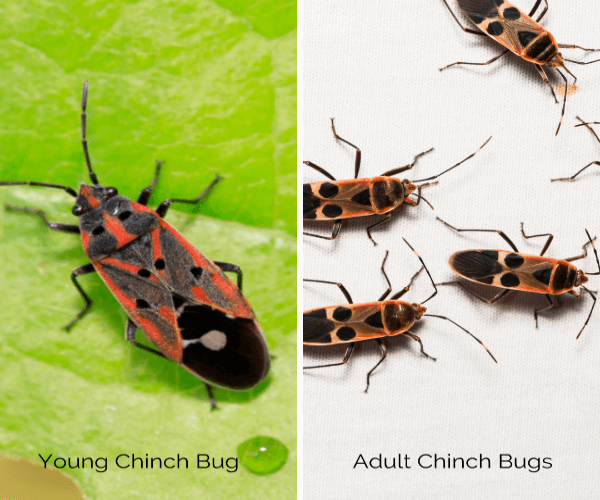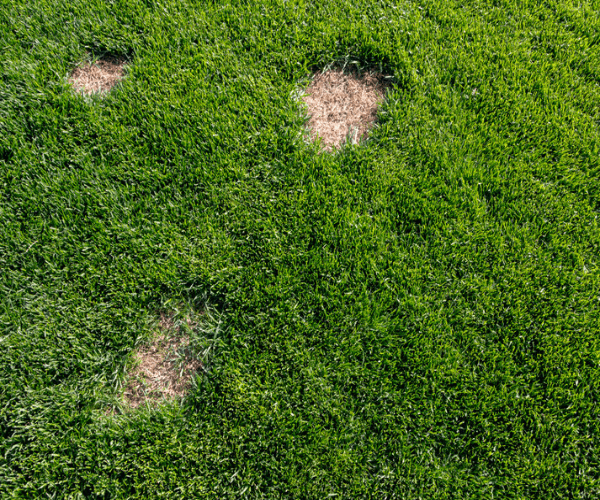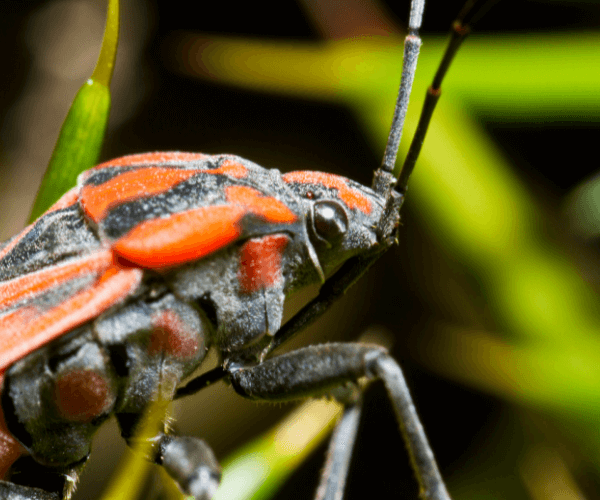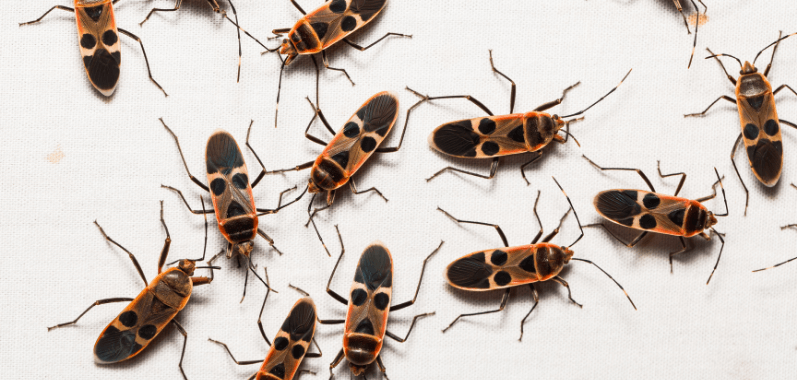Chinch bugs may be tiny, but they can cause thousands of dollars in damage to your lawn. These pests suck the juices from grass blades and inject toxins into the leaf blade, causing the grass to die. This leaves homeowners spending thousands to control outbreaks by applying treatments and replacing damaged grass. Keep reading to learn how to prevent and treat chinch bugs in your lawn.
What Is a Chinch Bug?
Chinch bugs are tiny, hard-to-see bugs that thrive in the heat of the south. When Chinch bugs are young, they are red, as they grow to an adult, they turn black. As they mature, they gain white spots in the shape of an X on their back. Adults can grow to be a quarter-inch long. They have wings, but only a tiny percentage of the population utilize their ability to fly for travel.
Chinch bugs favor warm-season grasses, such as St.Augustine and Tall Fescue. However, they can be found nationwide through various grass types. When heat and drought conditions get too intense, it kills insects such as ants and ladybugs. These insects feed on chinch bugs and keep their population under control.

How to Recognize Chinch Bugs Damage Your Lawn
You can find chinch bugs within the thatch layer (the layer between the grass and the soil). However, when there is a large population, they can be found resting on leaf blades or crawling across the lawn.
Chinch bug damage looks similar to how the grass looks under drought stress. The infected patches gradually turn yellow, then brown until they slowly die. After the grass dies, weeds will begin filling in the area. People often confuse Chinch bug damage with brown patch fungus or other lawn diseases.

How to Prevent Damage From Chinch Bugs
To prevent these pesky bugs from feeding on your lawn, there are a few simple things you can do. An essential rule of thumb is to keep your lawn healthy. Actively growing lawns are better able to withstand weeds and lawn insects than lawns that are weak or slow-growing. Working with a professional to provide your yard with proper lawn maintenance, watering, nutrition, and weed control will help your lawn thrive against chinch bugs and other pests.
Other tips to keeping chinch bugs out of your lawn
- Only cut one-third of your grass blade when mowing
Cutting more than one-third of the grass blade stresses your lawn. When your lawn is stressed, it weakens and makes it more prone to future infestations.
- Resod the bare spots from chinch bug damage
Once all the chinch bugs have been removed, sod the killed patches of grass. If you’re using a two-application chemical treatment, you can resod immediately after the initial dose of pesticide.
How to Kill Chinch Bugs in Your Lawn
If your lawn is currently infested with chinch bugs, they can be challenging to get rid of. Chinch bugs can develop resistance to insecticides. If that happens, the eggs can still hatch and produce another generation to feed on your grass. If you have an active infestation, contact a professional.

If you want to kill the chinch bugs yourself, you could use a broad-spectrum pesticide. When buying a pesticide, make sure the label says that it kills chinch bugs. It’s important to note that pesticides kill chinch bugs, but not their eggs. Some products will require two separate applications: the first to kill existing bugs and a second, several weeks later, to kill any hatched from eggs laid before the initial application.
Another option to get rid of Chinch bugs is Diatomaceous Earth. Diatomaceous Earth is an earth-based powder used to kill ants and other insects. It is often added to livestock feed to rid animals of parasites. While DE looks soft and powdery, it contains microscopic particles that are razor-sharp. These particles pierce the bodies of insects that come into contact with it. Unlike other pesticides, insects cannot develop an immunity to Diatomaceous Earth.


Recent Comments